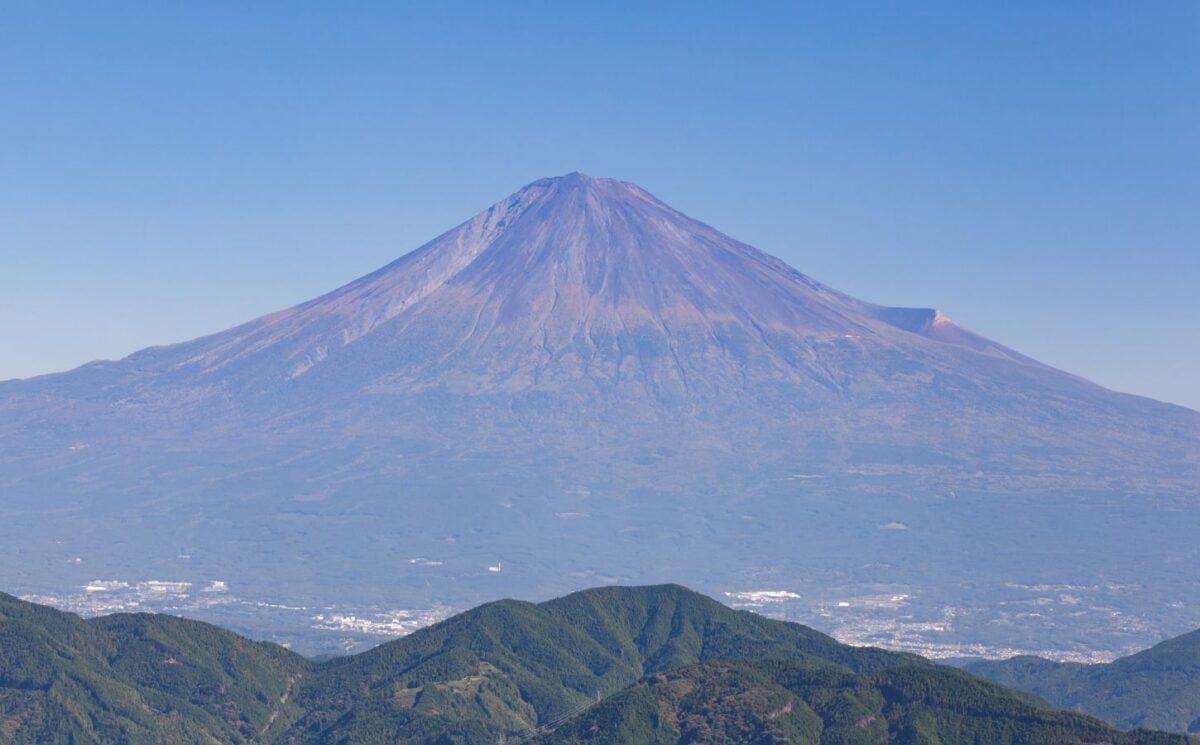Japan’s Mount Fuji still has no snow, making this the latest time in the year the iconic mountain volcano’s slopes have remained uncovered since records began 130 years ago.
Read more: Hundreds Of Climate Scientists Predict Global Heating Of At Least 2.5C
This year has surpassed the previous record of October 26, which was reported in both 1955 and 2016. The delay is thought to be linked to the climate crisis, which likely contributed to Japan’s hottest summer on record and warmer-than-expected fall.
Last month, Japan’s Meteorological Society reported that nearly 1,500 areas experienced “extremely hot days” of temperatures reaching or exceeding 35C.
At the moment, high temperatures at Fuji’s peak are still measuring in the 10s and slightly lower, making the formation of snow impossible until later in the year.
According to the Japan Meteorological Agency, the 12,000-foot peak typically begins forming its annual snowcap by October 2. In 2023, the first snow was detected by October 5, only slightly later than average. Data on Fuji’s snowcap was first collected in 1894.
Read more: England Just Had Second Worst Harvest On Record Due To Climate Crisis
Mount Fuji summit has ‘warmed considerably’

Andrew Bernstein, a professor of history at the Lewis and Clark College in Portland who has been researching Fuji for over a decade, told ABC News that the peak’s average maximum temperature between June and September has risen from about 5.5C to 7.7C.
“The atmosphere at the summit has definitely warmed considerably since 1970,” he added. “As we see with global warming around the world, it’s in high alpine regions and also closer to the poles that we see the most dramatic effects.”
Research published in Nature at the start of the year confirms that the human-caused climate crisis has reduced snowpacks throughout the Northern Hemisphere over the last 40 years, and other notable mountains are also experiencing delayed and reduced snow.
Also this week, scientists have said that there is “no doubt” that rising global temperatures have made Spain’s catastrophic droughts and flooding worse, as reported by the BBC.
Read more: Japan Looks To Attract Vegan Tourists With More Plant-Based Restaurant Options






